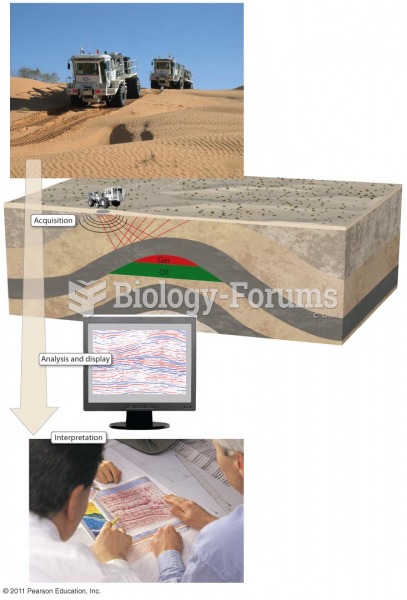|
|
|
The average adult has about 21 square feet of skin.
There are more sensory neurons in the tongue than in any other part of the body.
Russia has the highest death rate from cardiovascular disease followed by the Ukraine, Romania, Hungary, and Poland.
Despite claims by manufacturers, the supplement known as Ginkgo biloba was shown in a study of more than 3,000 participants to be ineffective in reducing development of dementia and Alzheimer’s disease in older people.
Once thought to have neurofibromatosis, Joseph Merrick (also known as "the elephant man") is now, in retrospect, thought by clinical experts to have had Proteus syndrome. This endocrine disease causes continued and abnormal growth of the bones, muscles, skin, and so on and can become completely debilitating with severe deformities occurring anywhere on the body.
 J. P. Morgan, the financial genius, staved off ruinous competition among steel firms by combining mo
J. P. Morgan, the financial genius, staved off ruinous competition among steel firms by combining mo
 The Masses, a leading Socialist magazine, featured drawings by artists, including John Sloan, as wel
The Masses, a leading Socialist magazine, featured drawings by artists, including John Sloan, as wel





